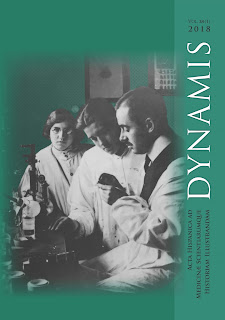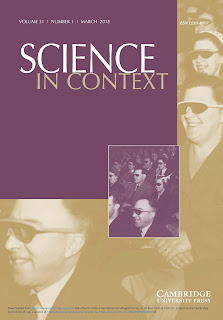Nuevo número: Dynamis, vol 38(1)

DYNAMIS Acta Hispanica ad Medicinae Scientiarumque Historiam Illustrandam VOLUMEN38(1) 2018 SUMARIO Declaración de Sant Joan d’Alacant en defensa del Acceso Abierto a las publicaciones científicas Medidas municipales contra la peste en la Lleida del siglo XIV e inicios del XV Guillem Roca Cabau La esfera terrestre en el cosmos isabelino: una aproximación a la difusión temprana del copernicanismo en Inglaterra Virginia Iommi Echeverría Despejando las sospechas: informes médicos en los tribunales de justicia de la comarca de la Ribera del Júcar (ss. XVI y XVII) Carmel Ferragud y María Luz López Terrada Fuentes lexicográficas para la historia de la alimentación y del fraude alimentario en la España del siglo XIX Bertha Gutiérrez Rodilla Historias de la niñez enferma. El caso del primer hospital marítimo de América Latina. Buenos Aires 1893-1945 Adriana Carlina Alvarez Cardozo Huellas dactilares a través del mundo transat...
